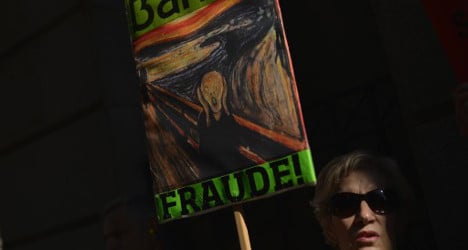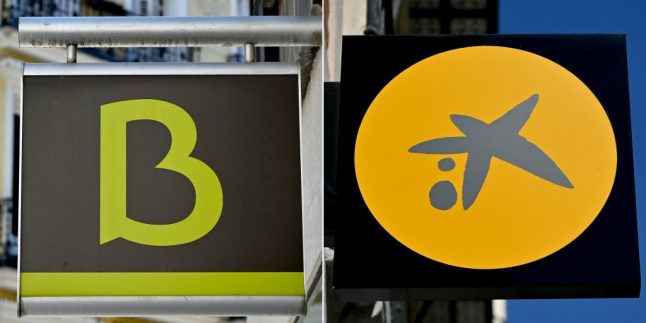Bankia president Jose Ignacio Goirigolzarri told radio Cope he welcomed the regulator's inquiry into Thursday's trading, which he could not explain. "It is difficult to understand, I don't understand it," he said.
The Bankia boss said he suspected institutions had engaged in short-selling, in which traders bet that a stock price will fall. The Spanish daily El Mundo also reported several banks had engaged in short selling.
As the price collapsed, many small investors called their bank branches wanting to sell their Bankia shares, but were told they had to wait until Tuesday, Spanish media said. In theory individual investors could have sold their shares on Thursday, said Soledad Pellon, strategist at brokerage house IG Markets.
"But they don't know these practices. Institutional investors are much better informed about all the possibilities," Pellon said, adding that she believed the trade was legal.
Another brokerage house, Link Securities, said it believed the short-selling flouted Spanish regulations. "These sharp drop puts small shareholders in a weaker position because they can't sell and now face heavy losses," the group said.
On Tuesday, Bankia will boost its share capital by 15.54 billion euros, which had been expected to lead to an average loss of 36-38 percent for existing shareholders. Thursday's slump makes those losses much greater, however.
The investigation into the share trading comes as the courts investigate the original listing of Bankia nearly two years ago, with 33 bank officials suspected of fraud, embezzlement and providing false annual accounts.
As part of the probe, Santander president Emilio Botin, BBVA chief Francisco Gonzalez and CaixaBank boss Isidro Faine were called to testify to the court about meetings held in May 2012 with Economy Minister Luis de Guindos and then Bankia president Rodrigo Rato just ahead of his resignation.
"Bankia was the bull in the china shop," said BBVA's Gonzalez, according to a legal source who was present during the testimony. "We did not tackle the problem in time."
Born in 2010 from the merger of seven troubled savings banks, Bankia soon became a symbol of Spain's banking crisis and the huge loans that turned sour after a 2008 property crash.
In May 2012, the BFA-Bankia group said it needed 19 billion euros to shore up its books, prompting Spain to seek a 100-billion-euro rescue loan for the entire industry from Brussels. So far, 41.3 billion euros of the rescue have been disbursed.




 Please whitelist us to continue reading.
Please whitelist us to continue reading.
Member comments